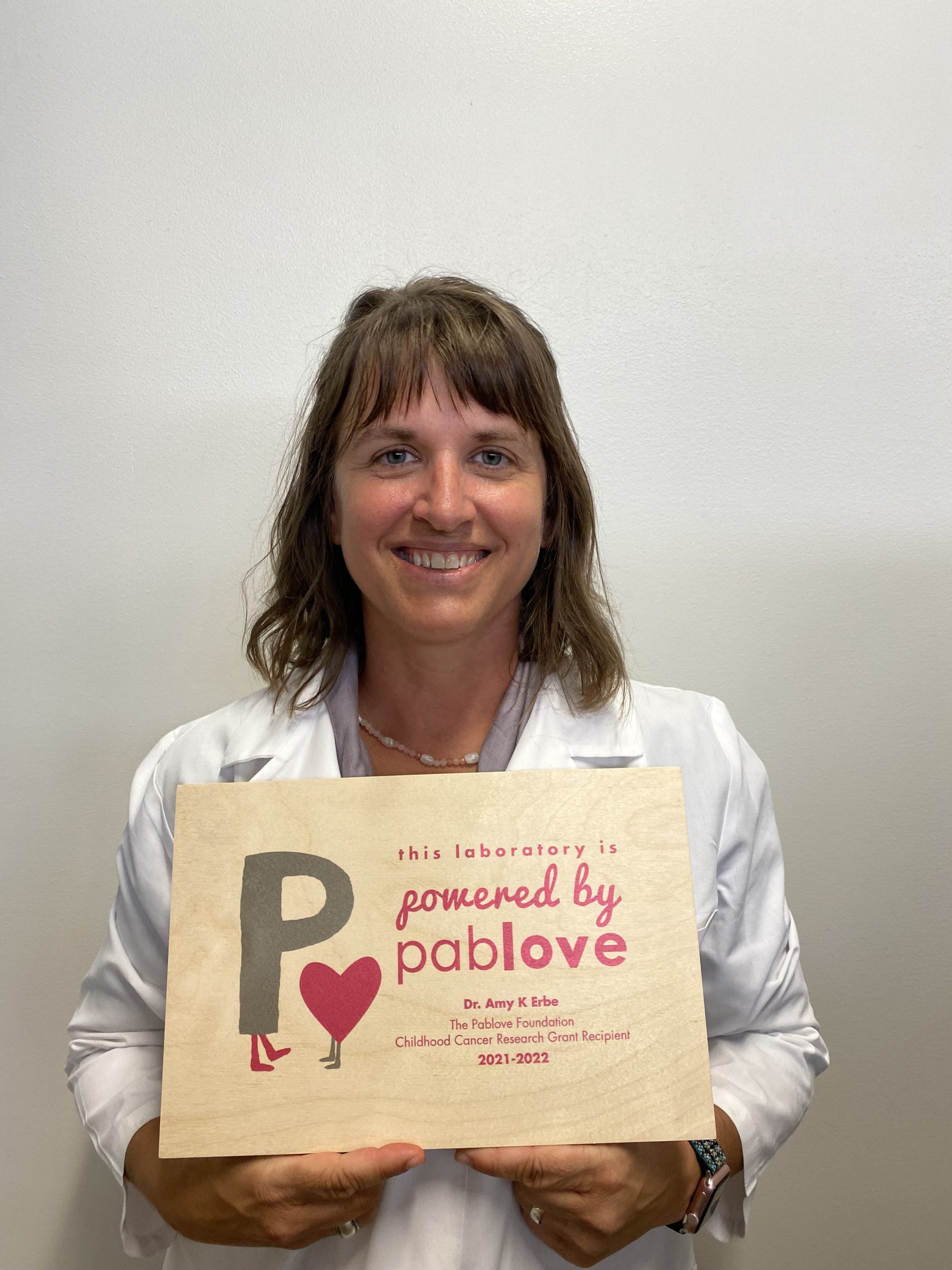Amy Erbe-Gurel, PhD
University of Wisconsin
Improving Specific Targeting of Neuroblastoma Tumors through Bispecific SNIPER Antibody to Reduce Off-Target Toxicities

Neuroblastoma (NBL) is a type of childhood cancer afflicting roughly 800 children annually in the U.S. Patients with high-risk NBL are treated with a regimen that includes immunotherapy that binds to a marker that is present on both tumor cells and some nervous tissue. The binding of this immunotherapy to nervous tissue makes treatment extremely painful. Dr. Erbe-Gurel has developed a modified version of this immunotherapy that would target only tumor cells. With her Powered by Pablove research funding, she plans to study this modified treatment in live neuroblastoma models.
In Dr. Erbe-Gurel own words:
Neuroblastoma (NBL) is a type of childhood cancer afflicting roughly 800 children annually in the U.S. Patients (pts) with high-risk NBL are treated with a regimen that includes immunotherapy. The regimen involves a monoclonal antibody, dinutuximab, that recognizes a marker, called “GD2”, that is present on NBL tumors. When dinutuximab binds to tumors via GD2, it activates immune cells to attack the NBL. GD2 expression is high on NBL tumors, but it is also found on some nervous tissue. Because of its expression on nerves that sense pain, pts experience severe pain during dinutuximab treatment. In order to make an antibody that binds only to tumor tissue, we developed a modified version of this drug, called a bispecific “Sniper” antibody, that needs to recognize 2 different markers on the tumor simultaneously in order to bind. The 2 markers that our Sniper recognizes are: 1) GD2 and 2) B7H3. While B7H3 is expressed on NBL, it is not found on nervous tissue. Thus, this Sniper antibody should bind well to NBL but not bind to nerves. We’ve shown in our lab that the Sniper kills tumors as well as Dinutuximab. We are now working to confirm that the Sniper binds to tumors that have both GD2 and B7H3 (like NBL), and that it does not bind to tissues that express GD2 but lack B7H3 (like nervous tissue). If this is demonstrated, then this Sniper should be able to improve care for pts with NBL by effectively curing their disease with less painful side-effects.
Research Update:
Dr. Amy Erbe-Gurel received $45,000 from HESI THRIVE Foundation to continue her promising research into an effective and less painful treatment for neuroblastoma